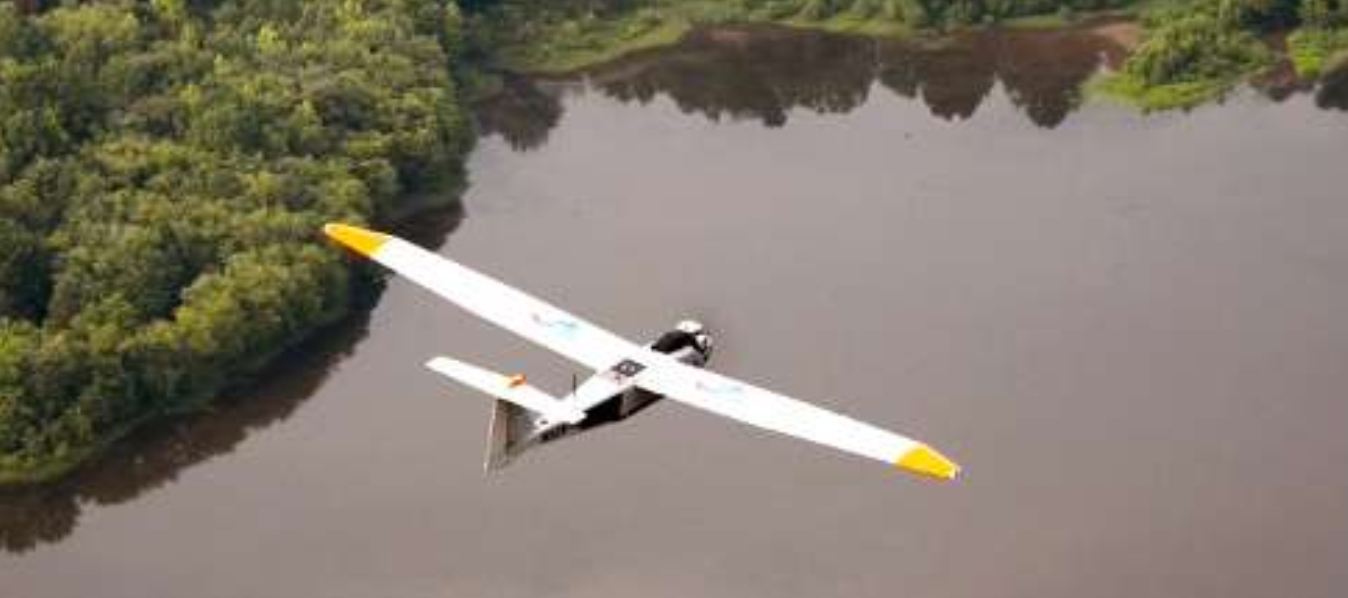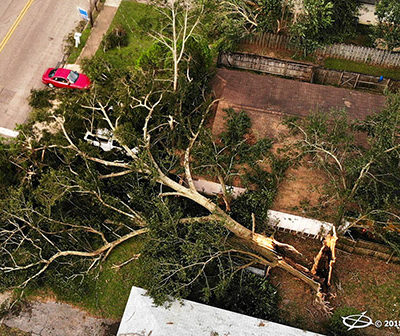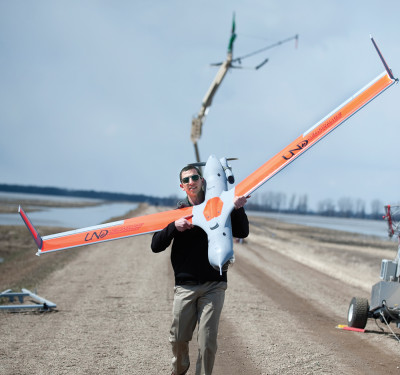
An aerial view of an unmanned aircraft during a research flight near Farmville, Virginia. The photo was taken from a chase plane that followed the aircraft for safety purposes. Photo courtesy of American Aerospace Technologies Inc.
Researchers recently flew a fixed-wing RS-2 UAS to detect threats to energy pipelines as part of a project associated with the Mid-Atlantic Aviation Partnership at Virginia Tech.
The UAS, which features a wingspan of more than 17 feet, flew beyond visual line of sight and used optical and infrared sensors to detect threats to the pipeline located near Farmville, Virginia, according to a news release. A piloted chase aircraft, with a visual observer onboard, followed the RS-20 to ensure safety.
Flight researchers had to identify construction equipment and other potential hazards placed along the test route, according to the release. The team had no prior knowledge of the type of threats or their location.
“We established the safe and efficient unmanned aviation operations during previous flights and this time we began the transition to operational data collection and processing,” said David Yoel, chief executive officer of American Aerospace Technologies Inc., a Pennsylvania-based company that provided the test aircraft, sensors and flight team, according to the release.
During the test flights, the UAS flew over a Colonial Pipeline Company right-of-way, according to the release. The Pipeline Research Council International, a collaborative research organization within the energy pipeline industry, supports the research.
“It’s exciting to see with each mission we are advancing toward an era where unmanned aircraft can safely share the airspace and be used to provide a valuable tool for this industry,” said Rose Mooney, executive director of the Mid-Atlantic Aviation Partnership, which is headquartered at the Institute for Critical Technology and Applied Science at Virginia Tech, according to the release.






